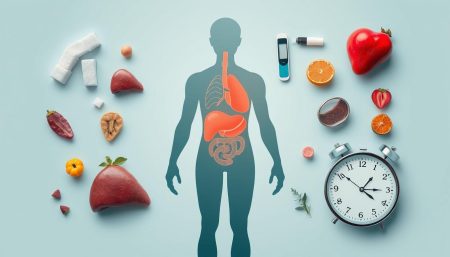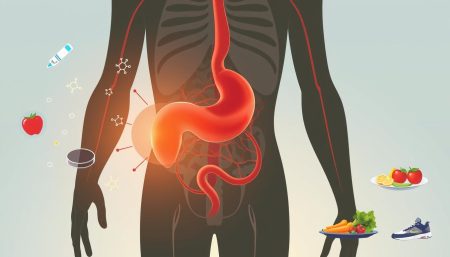Welcome to a deep dive into the latest diabetes mellitus type 2 medications for 2025. Medical science keeps evolving, bringing new hope for managing type 2 diabetes. This guide will help you understand and compare the newest, most effective treatments for diabetes.
Staying updated on type 2 diabetes care is key. This guide is your go-to for the latest in type 2 diabetes treatment. We promise to bring you the most accurate info, backed by top medical research and expert advice.
Exploring this guide will give you a clear view of why new diabetes mellitus type 2 medications are so important. It’s not just a list of drugs. It’s a light in the dark for those with type 2 diabetes, guiding them towards a healthier life.
Understanding Diabetes Mellitus Type 2 Medications
Type 2 diabetes is becoming more common worldwide. It’s important to know about the different diabetes drugs available. This includes oral medications for diabetes. We will explore the various types of medications that help manage this chronic condition.
Overview of Drug Classes and Mechanisms
Medications for Type 2 diabetes aim to fix issues with insulin resistance and low insulin production. The main types are metformin, sulfonylureas, thiazolidinediones, and DPP-4 inhibitors. Each works differently to lower blood sugar levels.
Recent Advances in Type 2 Diabetes Treatments
In recent years, there have been big improvements in diabetes drugs. New oral medications for diabetes have better control over blood sugar. They also have fewer side effects and complications compared to older drugs.
Personalized Medicine: Tailoring Type 2 Diabetes Therapy
Personalized medicine in Type 2 diabetes means tailoring treatments to each patient. This includes considering genetic factors, age, and other health conditions. It aims for better treatment results and fewer side effects. This shows how important it is to have treatments that fit each person’s needs.
First-Line Treatment: The Role of Metformin
Metformin is a key part of managing Type 2 diabetes. It’s effective, safe, and affordable. It helps control blood sugar levels and is recommended by diabetes associations worldwide.
Metformin lowers the liver’s glucose release and makes muscles more responsive to insulin. This helps manage blood sugar well. Its long use has shown it’s safe and beneficial for diabetes patients.
- Improves insulin sensitivity
- Decreases gluconeogenesis in the liver
- Reduces the absorption of glucose in the gut
- Enhances glucose uptake and utilization in the periphery
Using metformin can greatly improve hemoglobin A1c levels. This is a key marker for glucose control over time. Metformin is a vital part of managing diabetes.
| Medication | Effect on A1c Levels | Common Side Effects |
|---|---|---|
| Metformin | 1-2% | Gastrointestinal upset |
| Sulfonylureas | 1-2% | Weight gain, Hypoglycemia |
| DPP-4 inhibitors | 0.5-0.8% | Joint pain, Headache |
| GLP-1 agonists | 0.5-1.4% | Nausea, Diarrhea |
Guidelines always put metformin first in treatment plans. It’s safe and well-tolerated for long-term use. Its affordability makes it accessible for managing diabetes worldwide.
In summary, metformin’s role in diabetes management is backed by guidelines and real-world results. It’s a key treatment for Type 2 diabetes, showing its effectiveness as a first-line option.
Insulin Therapy in Type 2 Diabetes Management
Insulin therapy is key in managing type 2 diabetes. It helps control blood sugar levels when pills aren’t enough. This part explores the different types of insulin, when to use them, and new advancements.
Basal Insulin vs. Bolus Insulin: Pros and Cons
It’s important to know the difference between basal and bolus insulin. Basal insulin keeps blood sugar stable when you’re not eating, like at night. Bolus insulin helps after meals to prevent high blood sugar.
- Basal Insulin: Keeps insulin levels steady, reducing the chance of low blood sugar at night.
- Bolus Insulin: Helps control blood sugar after eating, which is key for managing it overall.
Insulin Analogs and Their Advancements by 2025
Insulin analogs have improved a lot in recent years. These are modified insulins that work better than regular insulin. By 2025, they will be even closer to natural insulin, making treatment safer and more comfortable.
Emerging Technologies in Insulin Delivery Systems
Insulin delivery is getting a tech boost, changing how we treat type 2 diabetes. New systems like smart pens, pumps, and continuous glucose monitors (CGM) make insulin therapy easier and less invasive.
- Smart insulin pens track doses and connect with health apps for better management.
- Advanced pumps adjust insulin based on real-time glucose data from CGMs.
Oral Medications for Diabetes: What’s New?
Oral medications for diabetes are playing a big role in managing diabetes mellitus type 2 medications. New research and FDA approvals bring exciting news about how well and safely these drugs work.
New discoveries in oral medications for diabetes include better versions of old drugs and new ones. These advancements help control blood sugar better and with fewer side effects. They also help with weight and heart health.
To learn more about better blood sugar control, check out Ozempic’s role in diabetes treatment. It shows how research keeps improving medication and care for diabetes.
| Medication | Action | Benefits |
|---|---|---|
| New-Age DPP-4 Inhibitors | Enhances the body’s ability to lower glucose post-meal | Improves pancreatic hormone response |
| Next Gen SGLT2 Inhibitors | Expels excess glucose through urine | Reduces risk of heart disease, aids in weight loss |
| Advanced Sulfonylureas | Stimulates insulin secretion | Lowers fasting and postprandial glucose levels |
With more treatment options, including better diabetes mellitus type 2 medications, patients get more personalized care. This makes managing the disease easier. It’s important for doctors and patients to stay updated on these advancements.
Injectable Treatments: Beyond Insulin
Insulin is key for managing diabetes, but new diabetes drugs have brought injectable treatments with big benefits. The GLP-1 receptor agonists are getting attention for controlling blood sugar, helping with weight, and improving heart health.
Exploring GLP-1 Receptor Agonists
GLP-1 receptor agonists mimic a hormone in our bodies. They help release insulin and stop glucagon when blood sugar is high. This lowers blood sugar levels. They also make us feel full, helping with weight loss, which is great for people with type 2 diabetes and obesity.
To learn more about GLP-1 receptor agonists like Ozempic, check out this Ozempic guide.
Combination Therapies with Injectable Medications
Using GLP-1 receptor agonists with other diabetes drugs has changed how we treat diabetes. These combos use different ways to control blood sugar and improve health.
| Drug Combination | Benefits | Considerations |
|---|---|---|
| GLP-1 Receptor Agonists + Insulin | Improved blood sugar control, reduced insulin dosage, weight loss | Cost, regimen complexity |
| GLP-1 Receptor Agonists + Metformin | Enhanced glucose lowering, cardiovascular benefits, weight management | Side effects management |
These combos can make treatment easier and tackle diabetes in many ways. But, the right mix depends on the patient’s health and goals.

Sulfonylureas and Their Place in Current Treatment Protocols
Sulfonylureas are key in treating type 2 diabetes. They are important even with new treatments coming out. They work well when metformin alone isn’t enough.
Sulfonylureas are good at lowering blood sugar. They make the pancreas produce more insulin. But doctors must watch the dose to avoid low blood sugar.
Guidelines say to use sulfonylureas after metformin. This shows their value in treating type 2 diabetes. It’s important to find the right balance for each patient.
| Drug | Onset of Action | Risk of Hypoglycemia | Weight Impact |
|---|---|---|---|
| Glyburide | Fast | High | Potential Gain |
| Glipizide | Moderate | Moderate | Neutral |
| Glimepiride | Slow | Lower | Neutral |
The table shows different sulfonylureas used in type 2 diabetes. It compares their start time, risk of low blood sugar, and weight effect. These are important for making treatment plans for each patient.
Even though sulfonylureas are well-known, research keeps improving how they’re used. This makes them a safe and effective choice for fighting type 2 diabetes.
Maximizing The Benefits of DPP-4 Inhibitors
DPP-4 inhibitors are key in managing diabetes. They help control blood sugar without causing weight gain or low blood sugar. Knowing how to use them well can greatly help people with type 2 diabetes.
DPP-4 inhibitors work by increasing incretin levels. This action stops glucagon release, boosts insulin, and lowers glucose made by the liver. They are great for those at risk of low blood sugar or who struggle with weight, as they don’t cause weight gain like many other diabetes drugs do.
- Reduction in blood sugar spikes
- Low risk of hypoglycemia
- No significant weight gain
To get the most out of DPP-4 inhibitors, they should be part of a treatment plan made just for each patient. This means choosing the right patients, checking blood sugar often, and making changes as needed.
DPP-4 inhibitors work well alone but are often paired with other drugs like metformin. This combo is good for those needing better blood sugar control without gaining weight or risking severe low blood sugar.
Studies show that teaching patients about their medication is key. Telling them when to take it and how it might interact with other drugs can lead to better diabetes care.
Cardiovascular Benefits of SGLT2 Inhibitors
SGLT2 inhibitors have brought new hope to treating type 2 diabetes, focusing on heart health. Studies show they help control blood sugar and protect the heart. This makes them key in managing diabetes, helping those at risk of heart disease.
Understanding the Protective Cardiac Effects
SGLT2 inhibitors work by stopping the kidneys from reabsorbing glucose. But they do more than just lower blood sugar. They also help lower blood pressure and weight, which are good for the heart. Recent trials suggest they can even reduce heart failure risk by improving heart function.
SGLT2 Inhibitors in Combination Therapies
When paired with other drugs, SGLT2 inhibitors boost their heart benefits. They’re often combined with metformin or GLP-1 receptor agonists. This combo fights heart disease in type 2 diabetes patients. Heart associations support using SGLT2 inhibitors in treatment plans, highlighting their importance in heart care.
Updates in Therapy: New Medications on the Horizon
The world of healthcare is always changing, and new medicines for diabetes type 2 are a big hope for many. New drugs are coming that could change how we treat diabetes. We’ll look at the latest approved drugs and what’s being tested in labs.
Latest Drug Approvals and Their Impact on Treatment
Recently, the healthcare world has seen big steps forward with new drug approvals. These new medicines help control blood sugar better and lower diabetes risks. They’re made to have fewer side effects and help patients live better lives.
What’s in the Pipeline? Drugs Under Clinical Trials
There’s a lot of hope for the future with new diabetes medicines in the works. These drugs are being tested in clinical trials and promise to be even better than current treatments. They aim to tackle diabetes in new ways, bringing hope for better care.
Lifestyle and Medication: The Dual Approach to Treatment
Mixing lifestyle changes with medicine is key in treating type 2 diabetes. This mix boosts how well medicine works and improves blood sugar and health. Many diabetes groups say big lifestyle changes can make a big difference.

Exercise and diet are top lifestyle changes. They help drugs work better in type 2 diabetes treatment. Exercise makes your body use insulin better, and eating right keeps blood sugar in check. These changes work with medicine to cut down on drug use.
- Physical Activity: Do at least 150 minutes of moderate exercise a week, like brisk walking or swimming.
- Nutritional Choices: Eat foods high in fiber, like whole grains and veggies, and avoid too much sugar and fat.
- Weight Management: Keep a healthy weight to help manage or prevent type 2 diabetes.
- Stress Reduction: Use mindfulness or yoga to handle stress, which can hurt blood sugar levels.
Studies show that lifestyle changes with medicine can slow or stop type 2 diabetes. Knowing how to make lifestyle changes helps with medicine and lets people manage their health better.
Adverse Effects and Safety Profiles of New Medications
Managing diabetes well means always checking the safety of new medicines. We look closely at their good and bad effects. This helps make sure the benefits are worth the risks.
Safety profiles and adverse effects are key in planning treatments and keeping patients on track. Doctors need to keep up with the latest research. This helps them make the best choices for their patients.
The table below shows what we’ve learned about new diabetes medicines. It covers their side effects and safety:
| Medication | Common Adverse Effects | Safety Profile Considerations |
|---|---|---|
| Med A | nausea, headache, dizziness | Monitoring required for patients with renal impairment |
| Med B | hypoglycemia, weight gain | Not recommended for patients with a history of cardiovascular disease |
| Med C | fatigue, gastrointestinal discomfort | Requires periodic liver function tests |
Keeping an eye on the adverse effects and strong safety profiles of diabetes medicines is vital. It protects patients and makes treatments work better. This careful approach is key to reducing risks and getting the most from treatments.
Insurance and Cost Considerations for Diabetes Drugs
Dealing with the cost of diabetes treatment can be tough. Insurance considerations and drug costs are key in patient care. It’s important for people to know how to handle these issues well.
Navigating Insurance Coverage for Diabetes Treatment
Insurance plans differ a lot, affecting what patients pay for diabetes meds. Talking to a healthcare financial counselor can help. They can explain insurance plans and help patients save money.
Cost-Efficient Strategies and Patient Assistance Programs
For those with high medication costs, patient assistance programs are a big help. These programs, funded by drug companies, can lower or cover drug costs. Here’s a look at some popular programs:
| Program Name | Eligibility Requirements | Benefits Offered |
|---|---|---|
| Medicare Extra Help | Income below specified limit; enrollment in Medicare Part D | Covers up to 95% of drug costs |
| Pfizer RxPathways | Varies based on drug and income | Provides medication at no or low cost |
| Novo Nordisk Patient Assistance | Income below 400% of the federal poverty level | Free diabetes medication for up to a year |
It’s important to understand insurance considerations and use patient assistance programs. These steps help manage diabetes costs. Patients and caregivers should look into these options to get treatments without breaking the bank.
Nutrition and Its Interaction With Type 2 Diabetes Medications
Managing Type 2 diabetes well needs a mix of medicine and good food choices. It’s key to know how food and drugs work together. This helps plan a good diabetes care plan.
Carbs are important in diabetes care because they affect blood sugar. Drugs like Sulfonylureas or Insulin might need to be adjusted with carbs to avoid low blood sugar. But, eating foods high in fiber can help control blood sugar naturally, working well with diabetes drugs.
Fats, like omega-3s, are also important. They don’t mess with diabetes drugs but help lower inflammation and make insulin work better. So, eating healthy fats from fish, nuts, and avocados is good.
- Dietary Fiber: Choose foods high in fiber like whole grains, lentils, and veggies to slow down sugar absorption.
- Lean Proteins: Eat lean meats like chicken, turkey, and fish. They don’t raise blood sugar much and give energy for a long time.
- Healthy Fats: Go for unsaturated fats in olive oil, nuts, and seeds for heart health.
It’s also important to know which foods to be careful with. For example, grapefruit and its juice can mess with some diabetes drugs, causing low blood sugar. Too much potassium is good but can affect some diabetes drugs too.
Knowing how food and drugs interact helps patients manage their diabetes better. It’s about a whole health approach that matches medicine with the right food. Talking to doctors and dietitians can help make a diet plan that fits your health and medicine needs.
Patient Adherence: Improving Outcomes with Education and Support
Improving patient adherence to diabetes treatments requires a strong focus on education and support. Managing diabetes well is not just about taking the right medicine. It also needs ongoing support and education. This helps patients feel more in control of their health.
Technological Aids for Medication Adherence
New technologies are key in helping patients stick to their treatment plans. Digital pill dispensers and mobile apps help track medication schedules and doses. These tools make it easier to manage many medications and reduce mistakes.
The Importance of Patient-Centered Care in Diabetes Management
A patient-centered approach is vital for managing diabetes. It means making treatment plans that fit each patient’s unique needs and lifestyle. Support groups and education programs are essential. They give patients the tools and confidence to manage their diabetes well.
- Education: This includes formal and informal learning that teaches patients about their medications and lifestyle changes.
- Support: Support goes beyond doctors, involving family, friends, and diabetes groups. Together, they form a strong care network.
By using educational tools and strong support networks, healthcare can improve adherence rates. This leads to better health outcomes and a better quality of life for those with diabetes.
Looking Forward: The Future of Type 2 Diabetes Treatment
The medical world is always looking for new ways to treat diseases. The future of diabetes treatment is bright for those with type 2 diabetes. New research is making treatments better and easier for patients.
Soon, we might see smart drugs that change how they work based on blood sugar levels. This could help avoid the low blood sugar problems that often come with diabetes treatment.
Artificial intelligence is playing a big role in making treatment more personal. It’s working with new tech like continuous glucose monitors and ‘artificial pancreas’ systems. These could change how we manage diabetes for the better.
Telemedicine is also getting better, making care more accessible. This means people can get help sooner and manage their diabetes better.
New drug classes are being developed, focusing on new ways to treat diabetes. Genetics and precision medicine are helping make treatments that fit each person’s needs. This could make treatments more effective and reduce side effects.
Looking ahead, the goal is to improve life for those with type 2 diabetes. We’re working on better treatments and a more personal approach to care.
FAQ
Q: What are the latest medications available for managing diabetes mellitus type 2 as of 2025?
A: By 2025, new treatments include insulin analogs and GLP-1 receptor agonists. There are also next-generation SGLT2 inhibitors and DPP-4 inhibitors. The FDA has approved some drugs, and others are in clinical trials.
Q: Why is metformin considered the first-line medication for type 2 diabetes management?
A: Metformin is first because it lowers blood sugar well. It’s safe, doesn’t cause hypoglycemia, and doesn’t make you gain weight. It also helps your heart.
Q: How have insulin therapies advanced by 2025?
A: Insulin therapy has improved with ultra-long-acting and rapid-acting formulas. There are also smart pens and pumps for better dosing and adherence.
Q: What recent developments have been made in oral medications for diabetes?
A: New oral medications target different ways to control blood sugar. They also have better formulations to reduce side effects.
Q: How do GLP-1 receptor agonists contribute to diabetes management?
A: GLP-1 receptor agonists help by making more insulin and reducing hunger. They can also help your heart.
Q: What is the role of sulfonylureas in current treatment protocols?
A: Sulfonylureas increase insulin but are used with caution. They can cause low blood sugar and weight gain. They’re used when other options fail.
Q: How do SGLT2 inhibitors provide cardiovascular protection in type 2 diabetes patients?
A: SGLT2 inhibitors reduce heart failure risk in patients with heart disease. They improve heart function and blood pressure and help with weight loss.
Q: What impact do the most recent drug approvals have on type 2 diabetes treatment?
A: New drug approvals give doctors more options. This leads to more tailored treatments and better outcomes for patients.
Q: How should lifestyle changes be integrated with medication for the treatment of type 2 diabetes?
A: Use both medication and lifestyle changes. Diet, exercise, and behavior work with medication to control blood sugar. This improves health overall.
Q: How can patients manage the costs associated with new diabetes medications?
A: Patients can save by understanding insurance, using patient programs, and choosing generics. Talk to your doctor about cost-effective options.
Q: What are the safety profiles and potentially adverse effects of the newest diabetes medications?
A: New medications are tested for safety. Their profiles include risks like low blood sugar and weight gain. Doctors consider these when prescribing.
Q: How can nutrition influence the effectiveness of type 2 diabetes medications?
A: Food affects how well diabetes medications work. Carb counting and avoiding high glycemic foods help. A balanced diet tailored to your medication improves control.
Q: Why is patient adherence to diabetes medication important, and how can it be improved?
A: Adherence is key to controlling blood sugar and preventing complications. Improve it with education, technology, and support systems.
Q: What does the future hold for the treatment of type 2 diabetes?
A: The future includes more targeted treatments and new technologies. There will be a focus on personalized medicine and research for cures.


















